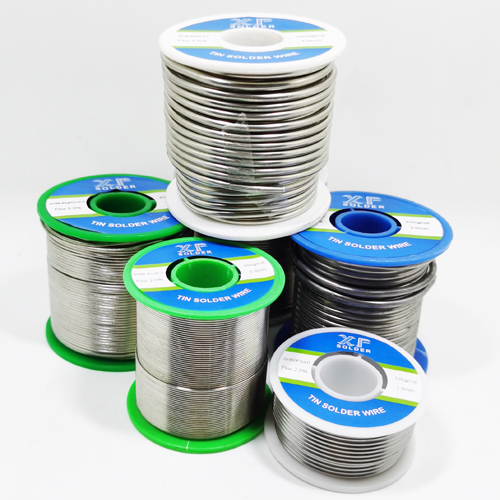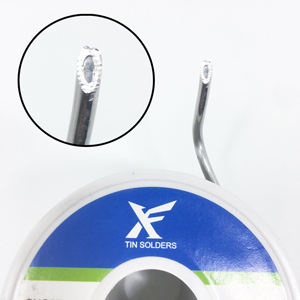Soldering Wire Tin Leads 0.8mm with Flux 250g
Introducing Soldering Wire Tin Leads 0.8mm with Flux 250g
Soldering wire is an essential tool for
those who work with electronic devices or want to do DIY projects at home. The
soldering wire tin leads 0.8mm with flux 250g is a high-quality soldering wire
that is designed to make your work easier and more efficient. In this article,
we will explore the different aspects of this product, including what it is,
why it is designed with these specifications, and how it can be used in various
applications.

What is Soldering Wire Tin Leads 0.8mm with Flux 250g
Soldering Wire Tin Leads
Soldering wire tin leads are wires made of
tin-lead alloys that are used to join two metal parts together. They are
commonly used in electronic devices, such as circuit boards, to connect
components like resistors, capacitors, and ICs. The tin-lead alloys are chosen
because they have a low melting point, which makes them easy to work with when
soldering. They also provide a strong bond between the two parts, which ensures
that the connection is reliable and long-lasting.
Different Alloy Compositions
The tin-lead alloy used in soldering wire
can vary in composition. For instance, the tin-lead ratio can be adjusted to
change the melting point of the alloy. A higher tin content will lower the
melting point of the alloy, which makes it easier to work with, while a higher
lead content will increase the strength of the bond. Other elements can also be
added to the alloy to improve its properties. Common alloys in the markets are:
soldering wire 63/37, soldering wire 60/40, soldering wire 50/50, soldering
wire 40/60.
Why do we make soldering wire 250g per roll?
The soldering wire 250g per roll size is a convenient
choice for those who frequently use soldering wire. It is large enough to last
for multiple projects, reducing the need for frequent restocking, but not so
large that it becomes cumbersome to handle. The roll size is also designed to
fit standard soldering wire dispensers, making it easy to dispense the wire as
needed.
Why do we use soldering wire with 0.8mm diameter?
Precision work: Soldering wire with a smaller diameter, such as 0.8mm, allows for greater precision when working with smaller components. This is especially useful when working on electronics or intricate projects.
Maneuverability: Thicker soldering wire can be difficult to maneuver, making it challenging to apply solder in tight spaces or around delicate components. A smaller diameter wire, such as soldering wire 0.8mm, is more flexible and easier to handle.
Control: A thinner wire provides greater control when applying solder. This can be important when working with small components or when attempting to avoid accidentally bridging connections.
Efficiency: Using a smaller diameter wire
can also help to reduce the amount of solder required for a particular joint.
This can result in a more efficient use of materials and a cleaner final
product.
Why do we make soldering wire 0.8mm with flux?
Flux is a material that is added to
soldering wire to help clean and prepare the surfaces to be soldered. Soldering wire 0.8mm with flux removes any oxidation or other contaminants that can interfere with the bond,
ensuring a strong and reliable connection. The flux also helps to prevent the
formation of "cold joints," which occur when the solder does not
fully bond to the surface. Cold joints can result in weak connections that can
break or fail over time.

Applications of Soldering Wire Tin Leads 0.8mm with Flux 250g
When it comes to the application of
soldering wire, the 0.8mm diameter is a versatile choice suitable for a range
of projects. It is particularly useful for precision work or smaller components
where thicker wires can be too difficult to maneuver. The soldering wire tin
leads 0.8mm with flux 250g is suitable for use on various metals, including
copper, brass, and aluminum, making it an ideal choice for electronics or
metalworking projects.
